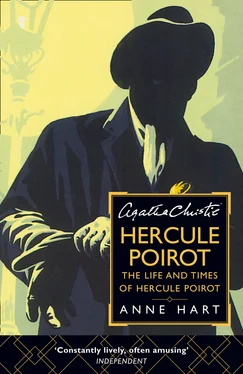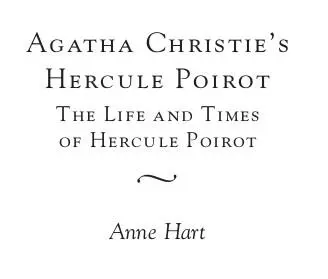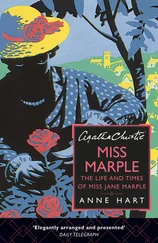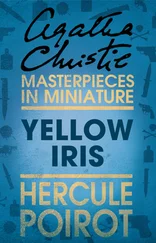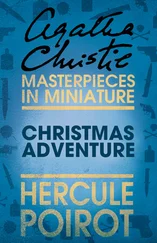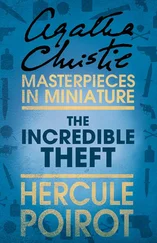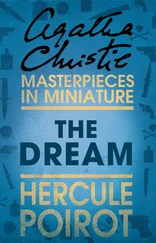
HarperCollins Publishers Ltd 1 London Bridge Street London SE1 9GF
www.harpercollins.co.uk
Revised edition published in Great Britain by HarperCollins Publishers 2019
Copyright © Anne Hart 1990
Cover design by Andrew Davidson © HarperCollins/Agatha Christie Ltd 2019
AGATHA CHRISTIE®, POIROT® and the Agatha Christie Signature are registered trademarks of Agatha Christie Limited in the UK and elsewhere. All rights reserved.
www.agathachristie.com
Anne Hart asserts the moral right to be identified as the author of this work.
A catalogue copy of this book is available from the British Library.
All rights reserved under International and Pan-American Copyright Conventions. By payment of the required fees, you have been granted the non-exclusive, non-transferable right to access and read the text of this e-book on screen. No part of this text may be reproduced, transmitted, down-loaded, decompiled, reverse engineered, or stored in or introduced into any information storage and retrieval system, in any form or by any means, whether electronic or mechanical, now known or hereinafter invented, without the express written permission of HarperCollins.
Source ISBN: 9780008340278
Ebook Edition © May 2019 ISBN: 9780007397297
Version: 2019-04-06
For Susan, Peter and Stephen

Cover
Title Page
Copyright
Dedication
Preface
1 The Curtain Rises
2 The English Debut
3 The 1920s
4 The 1930s
5 The 1940s
6 The Last Three Decades
7 The Complete Poirot
8 The English World of Hercule Poirot
9 Captain Arthur Hastings, OBE
10 The Domestic Poirot
11 The Expeditionary Poirot
12 ‘My Friend Poirot’
13 Countess Rossakoff and Mrs Oliver
14 The Available Poirot
15 The Detective Poirot
16 The Curtain Falls
A Poirot Bibliography
Hercule Poirot Short Stories
Poirot on Stage, Film, TV and Radio
References
Keep Reading
About the Author
Also by Anne Hart
About the Publisher

This is a biography of the illustrious Hercule Poirot who, behind a façade of dandyisms and mannerisms, was as shrewd and subtle a detective as ever walked the streets of London. For his creator, the incomparable Agatha Christie, he was at times a torment. In 1938, a mere twenty-two years after his genesis, she exclaimed in an interview: ‘There are moments when I have felt: “Why-Why-Why did I ever invent this detestable, bombastic, tiresome little creature? … Eternally straightening things, eternally boasting, eternally twirling his moustaches and tilting his egg-shaped head” … I point out that by a few strokes of the pen … I could destroy him utterly. He replies, grandiloquently: “Impossible to get rid of Poirot like that! He is much too clever.”’ Indeed he was. Poirot knew a supreme story-teller when he found one and never let go. For him she set her most perfect puzzles, thereby achieving immortality for them both.
As with my biography of Agatha Christie’s other major detective, Miss Jane Marple, I owe a great debt of thanks to Rosalind Hicks, Agatha Christie’s daughter, for her kind permission to use her mother’s writing in this way. In working on this second book I have also received the benefit and pleasure of her direct encouragement and hospitality, for which I am immensely grateful. I would also like to thank Anthony Hicks for his lively and helpful comments at the early stages, particularly on the ever controversial matter of Hercule Poirot’s age.
Two people have helped me enormously in the writing of this book. Peter Hart’s knowledgeable, rigorous and witty editing has saved me from many a pitfall (the ones that remain are entirely of my own digging), and Vernon Barber’s encouragement and assistance from the very beginning made the whole enterprise possible. I am grateful as well to Debbie Edgecombe for her heroic and intelligent deciphering of a seemingly interminable number of drafts and revisions. I would also like to thank Brian Stone, my astute and encouraging agent, Bob Comber, his assistant, Nancy Grenville, who gave discerning attention to the final draft, Christopher Burton, who kindly pursued the mystery of Poirot’s telephone numbers in the archives of British Telecom, and Pamela Hodgson who helped so much in the final stages.
Finally, at risk of appearing precious, I would like to thank Hercule Poirot. In my preoccupation for almost two years with this endearing and elegant little detective, there have been many moments of trepidation and exasperation. At the end of it all Poirot is firmly in my heart, a delightful condition I share with millions of readers. All of us are indebted to his inspired creator and sternest critic, Agatha Christie.
Anne Hart
‘My name,’ said Poirot, contriving as usual to make the simple statement sound like the curtain of the first act of a play, ‘my name is Hercule Poirot.’
—THE LABOURS OF HERCULES
That benevolent despot, Hercule Poirot, who to this day keeps a firm grasp on the affection of countless subjects, made his debut as a fully formed foreign eccentric on page 34 of his creator’s first book, The Mysterious Affair at Styles . On page 35 Cynthia Murdoch of Styles Court made a pioneer English attempt to describe him. ‘He’s a dear little man,’ she said.
Her remark was to stand the test of time wonderfully well, though not everyone who was to meet Poirot over the next six decades – especially not those attempting to cover up crimes – would agree with her. ‘You unutterable little jackanapes of a foreigner!’ more than one was to cry, purple with rage. Poirot himself would have been annoyed if he had heard Cynthia’s remark. ‘My name is Hercule Poirot,’ he was apt to say to those not appropriately impressed, ‘and I am probably the greatest detective in the world.’
A number of Christie scholars have debated his origins. The most important clues, of course, have been provided by Agatha Christie herself. In 1916, in her twenty-sixth year, she set herself the task of writing a detective novel:
Who could I have as a detective? I reviewed such detectives as I had met and admired in books. There was Sherlock Holmes, the one and only – I should never be able to emulate him . There was Arsène Lupin – was he a criminal or a detective? Anyway, not my kind. There was the young journalist Rouletabille in The Mystery of the Yellow Room – that was the sort of person whom I would like to invent … then I remembered our Belgian refugees. We had quite a colony of refugees living in the parish of Tor … Why not make my detective a Belgian? I thought. There were all types of refugees. How about a refugee police officer? A retired police officer. Not too young a one …
Читать дальше
